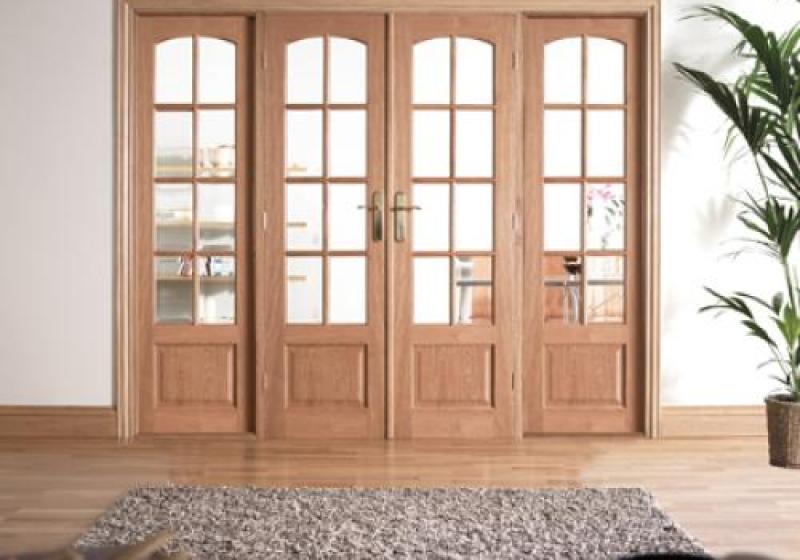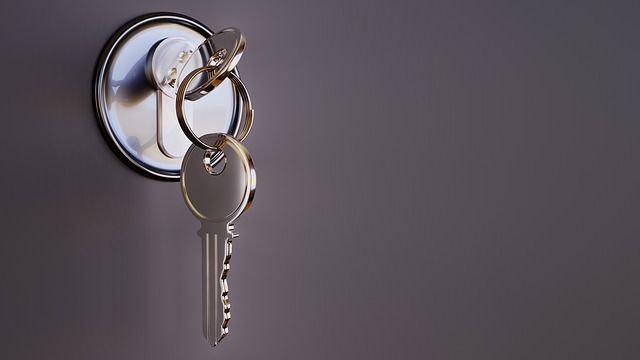
French doors have been popular for centuries thanks to their ability to allow light to flow from one space to another. They were first used by 17th century French aristocrats, to allow access to their balconies. A stately home during this period would be difficult to light, and so the sun had to be drafted in wherever possible to brighten up the interior.
Even today, in the age of electric lighting, a modern home will still benefit from a set or two of internal French doors. Moreover, internal ones are as popular and worthwhile as external ones, as they help to break down the barriers between rooms, creating that all-important sense of open space.
But French doors aren’t as self-explanatory as they might first appear. Let’s answer some of the French door-related questions we’re often asked.
French doors work in the same way as other hinged doors. There are two of them, and they’re attached to the frame on either side by two or more hinges. You might expand a set of French Doors with the sidelights and transom windows we’ve mentioned.
By definition, all French doors come with at least one glass panel on each door. These panels allow light to spread around the home easily without having to knock any walls out. They increase the sense of space around you, making the room you’re standing in and the one adjacent feel like a single, large space. If you put multiple sets of French doors in close proximity to one another, this effect is heightened still further – with the right setup, you might be able to see all the way from one end of your property to another.
If you’ve got a larger space that needs filling, you might consider a set of ‘French-fold’ doors. These incorporate the best features of the French and folding, sliding sorts of door, consisting of a series of panels, tethered to a rail, which fold from either side of a large entranceway and meet in the centre in the same way that traditional French doors do.
The way your French doors open will depend on your personal preference, and the exact makeup of your home. Generally speaking, you’ll want your doors to open out into the most generous space available. There’s are reasons, however, that most homeowners tend to avoid having their doors open out into a hallway.
Firstly, a hallway usually has many doors, which lead to the adjoining rooms. If each of these doors opened out into the hallway, an obstacle course would quickly be generated. What’s more, hallways experience greater foot traffic than the entranceways of bedrooms and bathrooms. Even with the extra visibility granted by a French door, this creates a likelihood that you’ll open the door right into the face of a passer-by. Finally, you might not want to show the hinges on the outside of the door – both from an aesthetic point of view and a security one (though this latter concern is less pressing for an interior door).
In the case of smaller rooms, like cupboards and pantries, you might find that having the door open inward isn’t practical or feasible. If there’s a shelf behind the door, you won’t want to have to enter the pantry, close the door on yourself, retrieve the item and then open the door before you’re able to leave!

If you’ve spent much time looking at French doors, then you might have come across two terms whose meaning might not be self-evident. Sidelights and demi panels are windows which sit either side of the doors, and are designed to match their style. They’re much like the transom we’ve already discussed, but for the side of the door rather than the top of it.
From a distance, they’ll give the impression of a single, large object rather than several discrete ones. They’re often used as an adornment for porches and patio doors, but they might also be used for internal ones, too. If you’d like to allow a lot of light to flow from one room to another, or you’d like to fill a space that’s slightly larger than the door you have in mind, a demi-panel might make a great solution.
Fitting a French door is a fairly difficult task, as even the slightest mismatch in alignment between the two doors will become visible very quickly. This installation is complicated further with the introduction of sidelights and other expansions – so unless you’re got a few installations under your belt, it’s best to get an expert to do the job for you.

One problem that arises from glazed doors concerns security – glass tends to be a great deal easier to break through than wood, plastic or metal. Ideally, external French doors should have a minimum of three separate locking points; that way a thief will need to break the glass in three different places in order to gain entry – a task for which most thieves won’t have the time or patience.
When it comes to the interior of your property, however, your priorities will be different. You’re not looking to prevent burglars from moving from place to place, but ensuring the building’s occupants can’t freely. Typically, this means preventing small children and animals from wandering into an out-of-bounds area, like a busy kitchen or a pristine lounge.
Do this using latches at the top and bottom of both doors. This will require a little bit of modification to the surrounding building, but the results are likely to be worth the effort. If you’d like a quicker fix, then you might want to simply tie the handles together on one side – you can buy specialist devices that do exactly this, but if you’d like a fast solution, a pillowcase or piece of rope will do the job reasonably well.
French doors offer a great means of allowing light to flow from one room to another. But if you’d like to enhance this effect even further, and you have a ceiling high enough, you might consider installing a transom window, too. These windows are designed to sit just atop the door – they’re traditionally used to illuminate porchways, but they can carry out the same function elsewhere in the home, too. They come in a number of different shapes; you might have seen a semi-circular ‘fanlight’ window at the front of older properties, most notably 10 Downing Street.
Transom lights are a great way to increase the spread of light through an interior – and they help to augment the effect of a glazed set of doors. Alternatively, you might consider sidelights – which serve the same purpose, but sit on either side of the door rather than above it.
Strictly speaking, the term ‘transom’ refers not to the window itself, but to the horizontal beam which separates the door from the window. That said, if you refer to the ‘transom’ when you really mean the transom window, it’s unlikely that you’ll be challenged on it!
One of the problems with using glass rather than wood is that glass transmits sound more easily. Double glazing is usually the go-to solution in these circumstances, provided that your door is thick and strong enough to support it. If you’ve already got a set of French doors in place, then a better option might be to replace the insulation around the edges of the door.
Check the surroundings of the door. If there are large gaps all the way around it, you might consider adding (or replacing) weather-strips around the edge of the frame. These will compress under pressure, forming a tight seal around the edge of the door, and excluding sound in the same way that they might on exterior doors. You might also cover the door in insulating foam, which will dampen the sound coming through. Finally, hanging a set of heavy curtains over the front of the door will help to minimise sound penetration.
Of course, these measures will also adversely impact the aesthetic appeal of the door – which is one of the main reasons that anyone opts for a set of French doors in the first place. If you’ve got a particular room in your home that needs special soundproofing – like a home studio or rehearsal space, then modifying an existing set of doors might make sense. In other circumstances, it’s best to opt for a set of doors with superior soundproofing performance right out of the box.
Proud stockists of....
